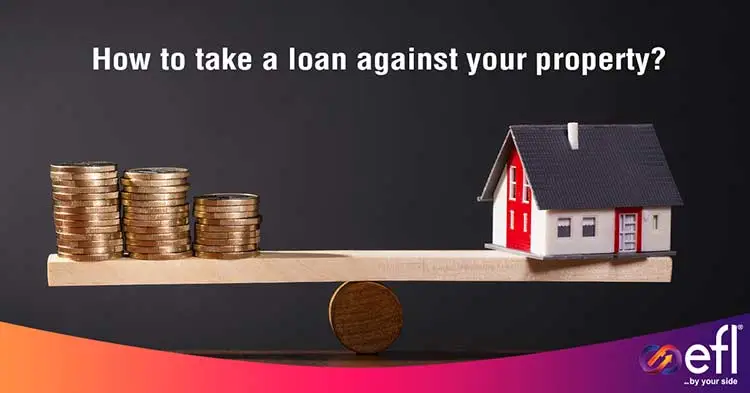Are you considering taking a business loan against your property? This comprehensive guide will walk you through the entire process, from understanding what a property-backed loan is to choosing the right lender and managing your loan effectively. This is your complete roadmap to making the most of your property assets.
A property-backed loan, also known as a Business Loan Against Property (BLAP), is a financial arrangement where you leverage the value of your property to secure a loan. In simpler terms, it’s a way to put your property to work for you.
Benefits of Taking a Business Loan Against Your Property
- Higher Loan Amounts: Property-backed loans often offer higher loan amounts compared to unsecured loans.
- Lower Interest Rates: The collateral (your property) reduces the lender’s risk, resulting in more favourable interest rates.
- Extended Repayment Period: You can enjoy a longer repayment tenure, making it more manageable.
- Tax benefits of loan against property: In many cases, the interest paid on property-backed loans can be tax-deductible.
Importance of Understanding the Process
Before diving into this financial commitment, it’s crucial to have a clear understanding of the entire process, from eligibility to repayment. Electronica Finance Limited will guide you through every step to make informed decisions.
Assessing Your Property’s Eligibility
Types of Properties Eligible for Loans
Property eligibility varies from lender to lender. Electronica Finance Limited considers residential and commercial properties for loans. The property should have a clear title and be free from any legal disputes.
Factors that Influence Eligibility
Factors like the property’s market value, your income, and credit score play a role in determining your eligibility for a property-backed loan. EFL’s experienced team can help you assess these criteria.
How to Estimate the Loan Amount you can Get?
You can typically borrow a percentage of your property’s current market value. This amount is determined by the Loan-to-Value (LTV) ratio. Electronica Finance Limited offers loans up to Rs. 3 crores, subject to eligibility.
Researching and Choosing the Right Lender
Banks and Traditional Lenders
Traditional lenders like banks often offer competitive interest rates and reliability. Electronica Finance Limited is a reputable choice for property-backed loans, offering specialised expertise in this domain.
Online Lenders and Alternative Options
Online lenders provide convenience and quick processing. Evaluate your options carefully, considering factors like loan terms, interest rates, and customer service.
Factors to Consider When Selecting a Lender
When choosing a lender, consider factors such as interest rates, processing fees, customer service, and reputation. EFL stands out with its transparent application process and unbeatable after-sales support.
Comparison of Interest Rates and Terms
EFL offers competitive interest rates and flexible repayment terms. Be sure to compare rates and terms from multiple lenders to secure the best deal.
The Application Process
Document Requirements
The application process typically requires property papers, income proof, and identity verification. Electronica Finance Limited simplifies this process for you with a clear checklist.
Credit Checks and Eligibility Assessment
Lenders assess your credit score and financial stability to determine your eligibility criteria. Even if you have less-than-perfect credit, EFL can guide you to the right loan product.
Timeline and Approval Process
The loan approval process can take as little as three working days with Electronica Finance Limited.
The Legal and Financial Aspects
Loan Agreements and Terms
Once the loan is approved, review the loan agreement carefully. Understand the terms, interest rate, and repayment schedule.
Risks and Responsibilities
Taking a loan against your property is a significant financial decision. Be aware of the risks involved and your responsibilities as a borrower.
Tax Implications
Consult a tax expert to understand how the interest paid on the loan will impact your tax liability.
Insurance Requirements
Your lender may require you to have property insurance. Ensure that you have the necessary coverage in place.
Managing the Loan
Repayment Options
Understand your repayment options and choose the one that aligns with your financial goals.
Utilising the Loan Funds Wisely
Use the funds wisely for the intended purpose, whether it’s home renovation, business expansion, or debt consolidation.
Monitoring Interest Rates
Keep an eye on interest rate trends. If rates drop significantly, refinancing could be an option.
Avoiding Default and Foreclosure
Make timely payments to avoid default. If you face financial difficulties, communicate with your lender to explore alternative solutions.
Conclusion
Taking a business loan against property can be a strategic financial move, but it requires careful planning and consideration of the available options.
Choose your lender wisely, stay informed, and manage your loan effectively to make the most of your property assets.
FAQs
What types of properties are eligible for a business loan against property?
Typically, both residential and commercial properties are eligible for a loan against property. The property should have a clear title and be free from legal disputes.
How do lenders determine the amount I can get a business loan against my property?
Lenders assess the market value of the mortgage, your income, and your creditworthiness to determine the loan amount you can secure. The loan amount is usually a percentage of the property’s current market value, called the LTV ratio.
What are the interest rates for property-backed loans?
Interest rates can vary depending on the lender, the loan type, and your creditworthiness. It’s essential to compare interest rates from multiple lenders to secure the best deal.
Are there any tax benefits associated with property-backed loans?
In many cases, the interest paid on property-backed loans may be tax-deductible. Consult a tax expert to understand the specific tax implications.
What happens if I can’t repay the business loan against my property?
If you default on your loan, the lender has the right to possess the property used as collateral. It’s essential to make timely payments to avoid this.
Is it possible to refinance a business loan against property?
Yes, you can consider mortgage refinancing to secure a new loan at better terms, such as a lower interest rate or an extended repayment period.
What are the alternative financing options to a property-backed loan?
Alternatives include personal loans, business loans, or other types of secured and unsecured loans. Each has its pros and cons, so it’s important to evaluate which suits your needs best.




